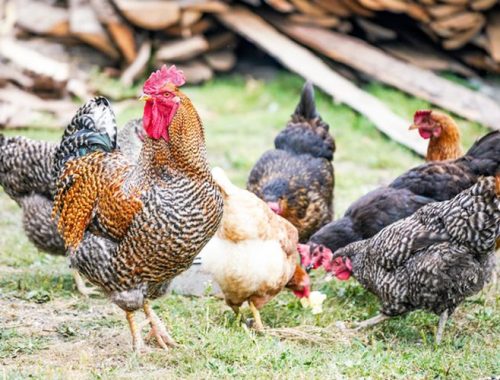Finding the Perfect Plot: Your Guide to Locating the Ideal Land for Farming Ventures
If you have ever dreamt of starting your own farming venture, one of the most crucial elements of your success lies in finding the perfect plot of land to cultivate. The process of locating an ideal and fertile land for farming can seem overwhelming, but with the right knowledge and guidance, you can secure a plot that will yield bountiful results. In this article, we will explore the key factors to consider when searching for the ideal land for your farming enterprise.
Introduction: The Importance of Finding the Perfect Farming Land
The success of any farming venture heavily relies on the location and quality of the land chosen for cultivation. The right piece of land can maximize crop yields, minimize resource consumption, and enhance profitability. Consequently, it is essential to conduct thorough research and analysis before making your land investment decision.
Factors to Consider When Choosing Farming Land
1. Soil Quality and Composition
The composition and quality of the soil on your prospective land are paramount to successful farming. Soil needs to be nutrient-rich, well-drained, and free of contaminants. Assessing the soil’s pH level and organic matter content is critical to ensure compatibility with your chosen crops.
2. Climate and Weather Conditions
Different crops thrive in diverse climate and weather conditions. Understanding the local climate patterns, including rainfall, temperature, and humidity, is essential before commencing your farming venture. Certain crops require specific conditions, so consider your intended crop choices when assessing the land’s climate suitability.
3. Water Accessibility and Irrigation Potential
The availability of water is a vital consideration for any farming venture. Access to a reliable water source, such as rivers, lakes, or aquifers, is ideal. Additionally, knowing the capacity for irrigation systems to be installed and maintained is important in ensuring consistent water supply, especially in areas with irregular rainfall.
4. Land Accessibility and Location
The proximity of the land to markets, suppliers, and transportation infrastructure is crucial for a successful farming business. Consider the ease of access for transporting produce and acquiring necessary supplies within a reasonable distance. Furthermore, being aware of zoning and land use regulations is essential to prevent any hindrances to your farming activities.
5. Land Size and Topography
The size and topography of the land will greatly influence the type and scale of agricultural operations you can undertake. Evaluate the acreage of the land based on your farming goals and determine if the plot has the required infrastructure, such as barns and storage facilities, to support your needs. Additionally, land with suitable contours and natural drainage will aid in avoiding potential waterlogging issues.
6. Environmental Considerations
Sustainable farming practices are becoming increasingly important in today’s world. Take into account any potential environmental impacts associated with the land, such as nearby industrial activities or the risk of soil erosion. By prioritizing environmentally friendly practices, you not only contribute to the community but also enhance the long-term viability of your farming venture.
Conclusion: Seizing the Perfect Opportunity
Finding the perfect plot for your farming venture may require diligent research and patience, but the rewards are immeasurable. By considering factors such as soil quality, climate, water accessibility, land location, size, and environmental impact, you can make an informed decision that sets the foundation for a successful and sustainable farming business.
Remember, your farming venture starts with the right soil beneath your feet and the ideal weather above—so choose wisely and watch your agricultural dreams flourish.
Frequently Asked Questions (FAQ)
1. How can I determine the quality of the soil on a potential farming land?
To evaluate soil quality, you can collect samples and have them tested by a professional soil laboratory. They will provide detailed analysis, including nutrient levels, pH balance, and organic matter content. You can also observe the presence of earthworms, which indicate healthy soil.
2. Is it necessary to have a water source on the land for farming?
While it is not mandatory to have a water source on the land, it is highly advantageous. Having a reliable source of water, whether through natural resources or installing irrigation systems, ensures consistent irrigation and crop hydration, minimizing dependence on outside sources and increasing your farming efficiency.
3. Can I cultivate multiple types of crops on the same plot of land?
Yes, cultivating multiple crops simultaneously, known as intercropping, is a common practice. It promotes biodiversity, maximizes land utilization, and reduces the risk of crop failure if one variety is susceptible to pests or diseases. However, it is vital to consider crop compatibility, nutrient requirements, and growth patterns when planning intercropping.
4. How far should my farming land be from potential markets and suppliers?
Ideally, your farming land should be within a reasonable distance from markets and suppliers to minimize transportation costs and ensure the freshness of your produce. The specific distance may vary depending on the infrastructure and logistics of your region.
5. Are there any regulations or permits I need to be aware of before purchasing farming land?
Yes, it is crucial to research and understand the zoning and land use regulations in your area. Ensure that your intended farming activities align with the permitted land use to prevent any legal issues or obstacles to your operations. Consulting with local authorities or a professional land-use planner can help navigate these considerations effectively.
You May Also Like

Top-Up with a Tap: Mobile Reload Made Easy in Malaysia!
March 15, 2023
PROJEK TERNAKAN AYAM KAMPUNG PKPS
October 4, 2021

